Translation is rarely a straightforward process – things like cultural differences, grammar differences, and implied information can make a simple line an unholy mess to translate. But things get really tricky when one language has a unique word that the other lacks.
In this second Tricky Translations article, we’ll examine a pesky word that regularly appears in Japanese entertainment: shitennō, more broadly known as “the Four Heavenly Kings” outside of Japan.
What Are the Four Heavenly Kings?

In Japanese, the Four Heavenly Kings are called the 四天王 (shitennō) – 四 means “four”, 天 roughly means “the heavens”, and 王 generally means “king”, “ruler”, or “lord”.
In short, shitennō is a very specific word that’s steeped in Buddhism and Japanese culture – the perfect recipe for a tricky translation.
So Many Translations
The word shitennō doesn’t have a direct equivalent in English, so translators have to get creative whenever it pops up. Here’s a short list of translations I found for shitennō while working on this article:
- Four Heavenly Kings
- shitennō (left untranslated)
- Four Fiends
- Four Archfiends
- Fearsome Four
- Vile 4
- Four Lords
- Four Monarchs
- Elite Four
- Big Four
- Four Devas
- Four Generals
- Four Guardians
- Four Kings
- The Four
- Spice Boys
The Problem
So what’s the deal? Why are there so many translations for shitennō, and why is it such a problem for Japanese-to-English translators?
There are all kinds of reasons – the English language doesn’t share the same Buddhist roots as Japanese, the word shitennō has taken on additional meanings, and the word shitennō has certain nuances that are easily lost in translation. I’ve outlined these issues and a few others below.
Issue #1: Shitennō Has Different Religious Nuances
First, shitennō can refer to the four Buddhist gods, of course:
But the easy translation of “Four Heavenly Kings” adds nuances that don’t always match. For example, in many English-speaking countries, the phrase “Heavenly King” is likely to bring to mind the Christian God, Jesus, or something similar instead:
In fact, even calling the shitennō “gods” is an oversimplification – they’re more technically devas. Basically, translating between languages can be hard enough, but nuances can drastically change when switching between religions too.
Issue #2: Shitennō Can Be Ordinary People
Although shitennō originally referred to a specific group of gods, the word has grown over time and is now used just as often to refer to groups of people:
Issue #3: Shitennō Aren’t Necessarily “Heavenly”
Similar to Issue #1, the English word “heavenly” carries certain images with it – goodness, holiness, peacefulness, and beautiful angels, for example. But shitennō isn’t bound by those same ideas – they can look and act like pure evil:
Issue #4: Shitennō Aren’t Necessarily “Kings”
The English word “king” often (although not always) refers to men in power. So while the phrase “Four Heavenly Kings” roughly suggests a group of four men, shitennō doesn’t have that same implication. Shitennō can easily include women – or be entirely comprised of women:
And as we’ve seen here and in previous issues, shitennō aren’t exactly “kings” in the Western sense. As a result, the phrase “Four Heavenly Kings” can give a different impression than what was originally intended.
Issue #5: Shitennō Aren’t Necessarily Living Beings
As we’ve see, the shitennō don’t have to be gods, or kings, or women, or heavenly. In fact, they don’t even have to be living things. Almost anything can be a shitennō now – even food:
Issue #6: The Word Shitennō Itself
The word shitennō evokes the image of four mighty beings, sounds snappy and intimidating, and is a relatively common term in Japanese. In contrast, the literal translation of “Four Heavenly Kings” is much longer, clunkier, and not quite as intimidating on its own.
These probably sound like silly little issues, but game and subtitle translators are locked in a never-ending struggle with tight text windows and limited screen space:
To sum everything up, while shitennō can often be translated as “Four Heavenly Kings” without much trouble, there are times when it’s too long, sounds awkward, gives the wrong impression, or borders on being completely off the mark.
It’s difficult to find an English word for shitennō that solves every issue listed above, so there’s no single “correct” translation most of the time. It’s even normal to see it left untranslated in some situations!
In the end, everything usually comes down to the translator’s creativity and personal preference. As a result, shitennō has seen many different translations over the years.
The Four Heavenly Kings in Action
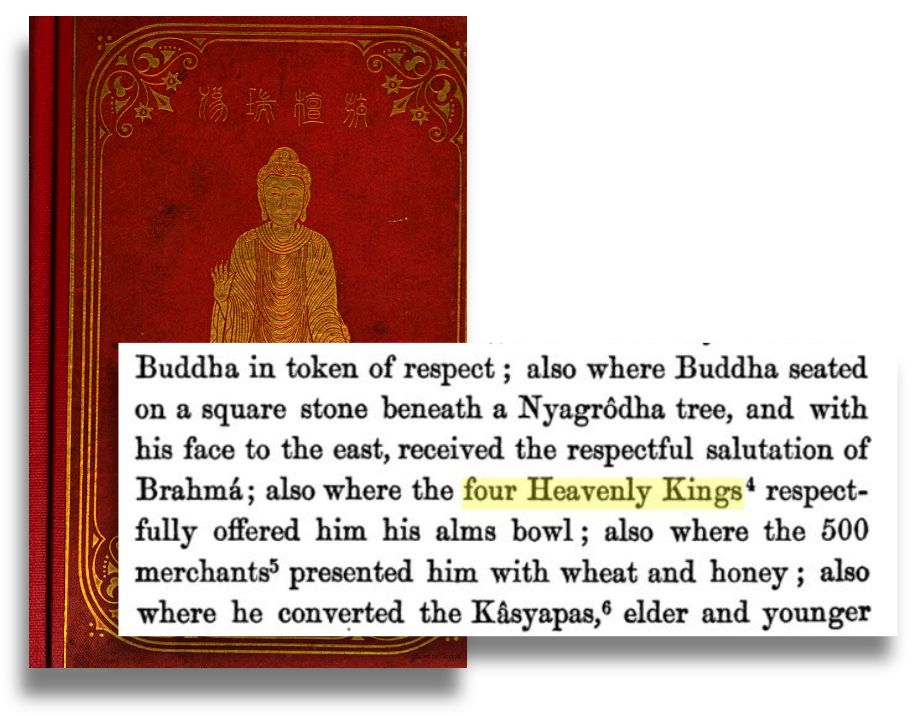
Still, despite how long the term has been in use, there’s rarely been a consensus on how it should be translated in more modern, non-Buddhist situations. So let’s look at how the phrase has been handled by professional translators over the past few decades.
Final Fantasy Series
By coincidence, the fourth Final Fantasy introduced the “Four Heavenly Kings” idea to many gamers outside of Japan – including myself – and that same association is strong even among Japanese gamers.
Final Fantasy IV has a lot of different translations as well (more details), and most of them handle shitennō in different ways:
Other Final Fantasy games have used the shitennō term too:
Pokémon Series
The Pokémon series is probably how most gamers were introduced to the shitennō idea. As such, the translation choice of “Elite Four” has remained strong throughout the series’ history and has become a common go-to translation for shitennō ever since.
Megami Tensei Series
The Megami Tensei games center around religious icons, so it’s no surprise that the shitennō appear in the series.
Other Games
Dragon Ball Series
The Dragon Ball series is humongous, so it’s no surprise that it features its own shitennō. The first reference that comes to mind is during the Garlic Jr. arc:
Other Anime & Manga Series
Not Everything’s a Shitennō
It’s neat to know that the Elite Four, the Four Fiends, and the Spice Boys all come from the same Japanese word, but there’s another tricky trap here: not every group of four is a shitennō:
The Heavenly Search Continues
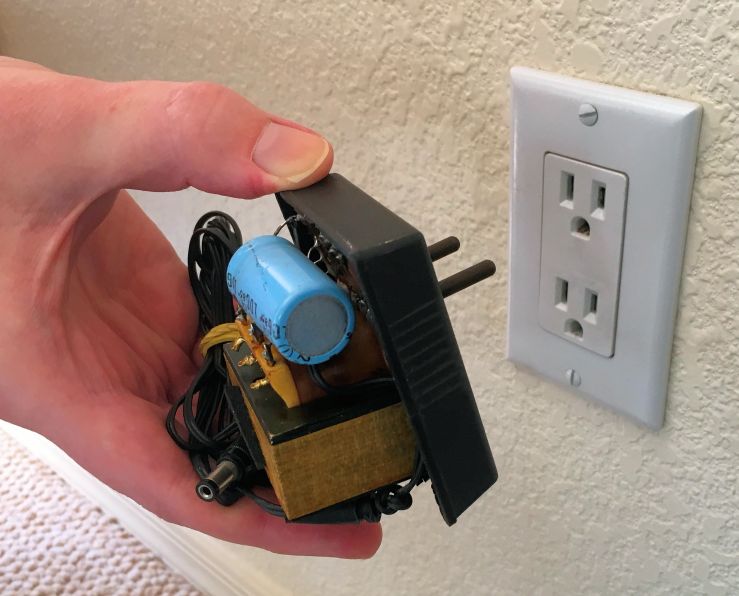
All silliness aside, the translation examples I’ve listed above are only a fraction of what’s probably out there, so I’d love to document more. If you encounter any other instances of the shitennō or Four Heavenly Kings in a translation, let me know in the comments or on Twitter and I’ll update this article from time to time.
And who knows, maybe we’ll eventually learn what the “Four Heavenly Kings of Four Heavenly King translations” are!
By the way, if you enjoyed this look at all the different translations for "Four Heavenly Kings", you'll love my article about the term "Maō/Demon King"!


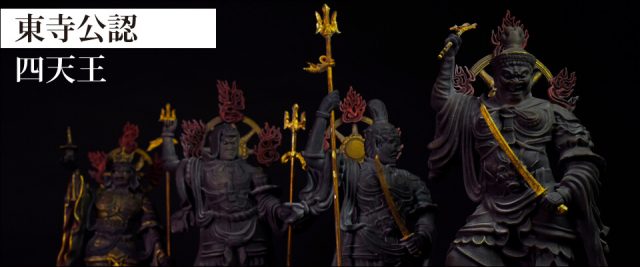
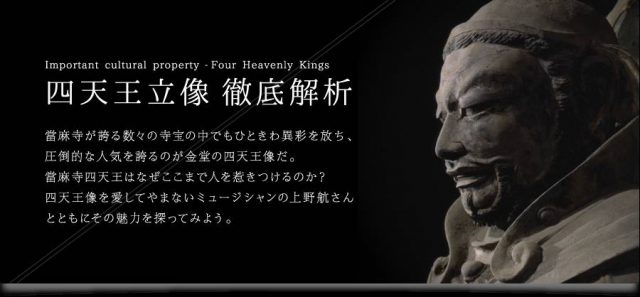
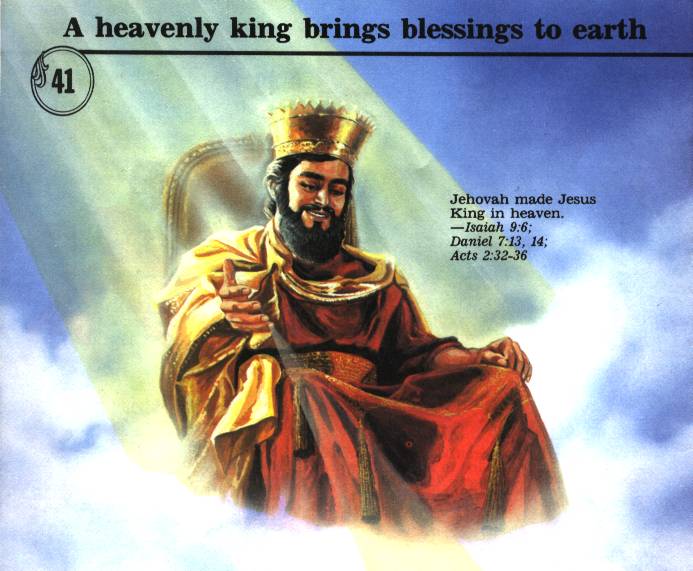
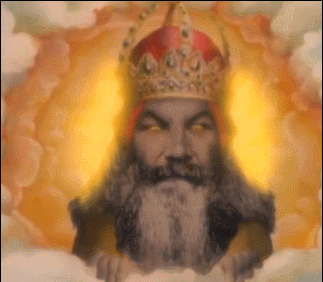
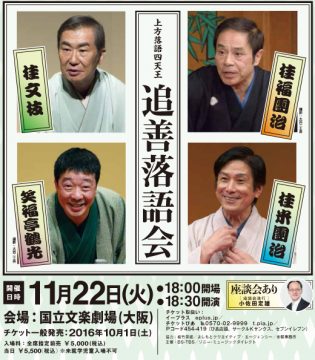

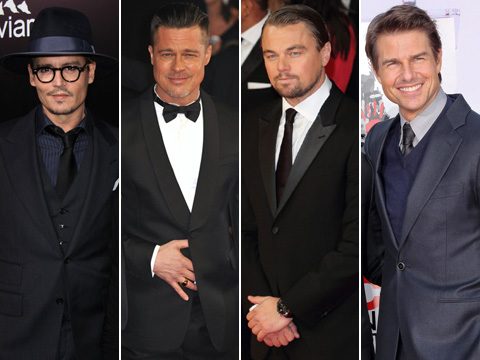
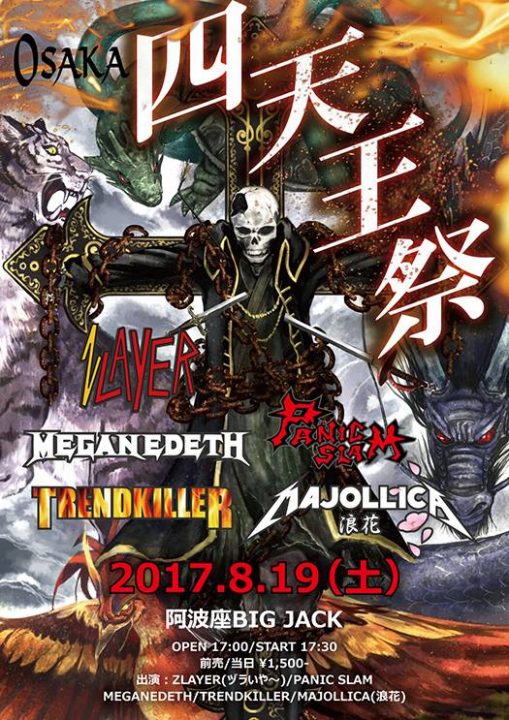
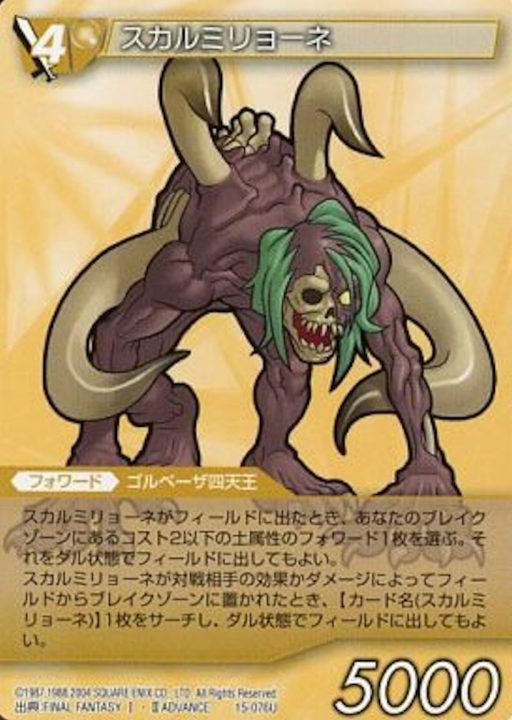
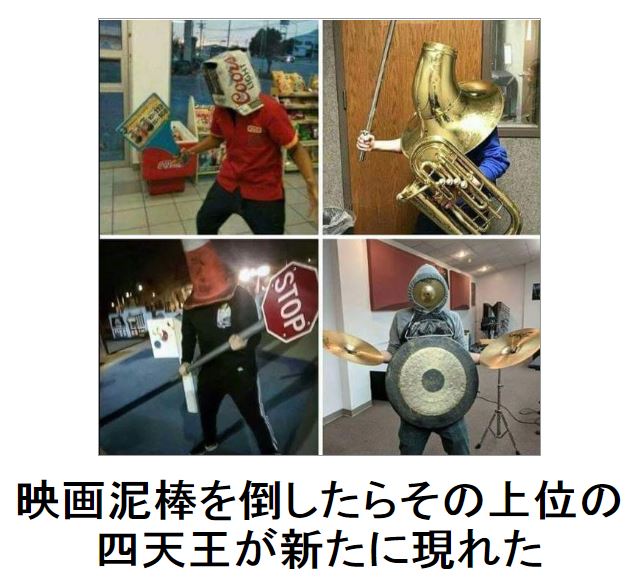



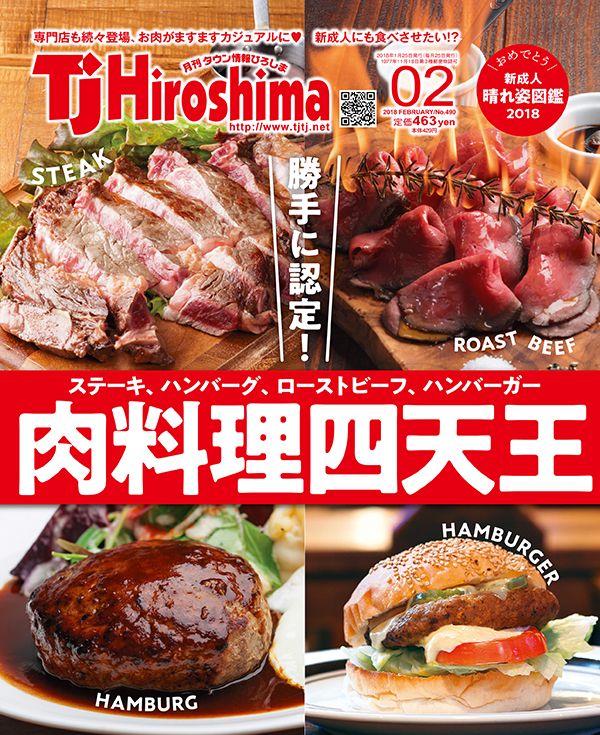
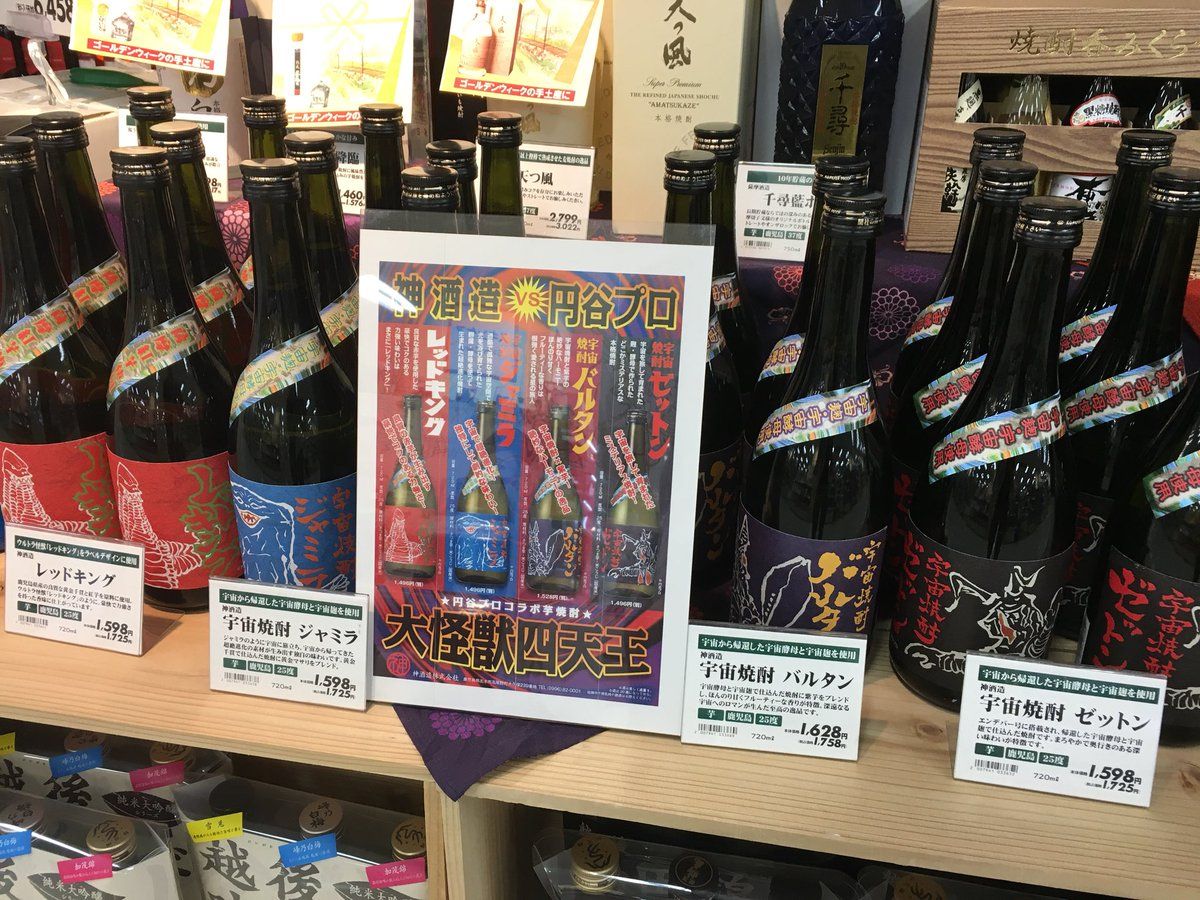


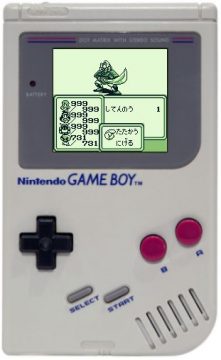
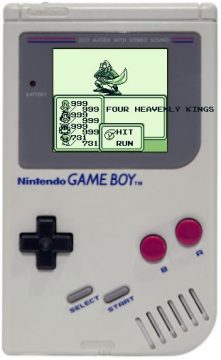
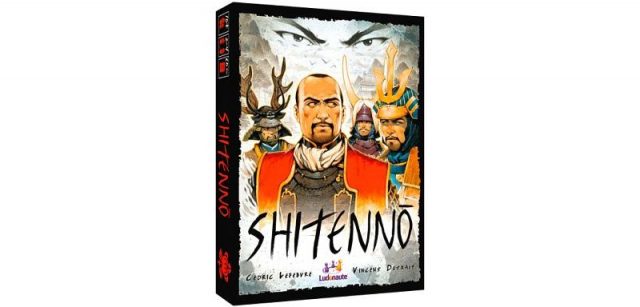
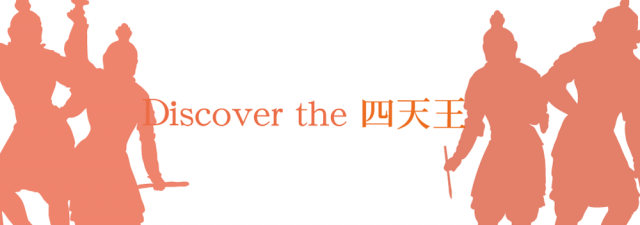
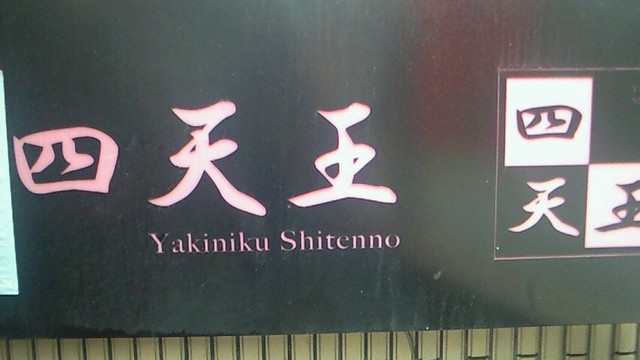
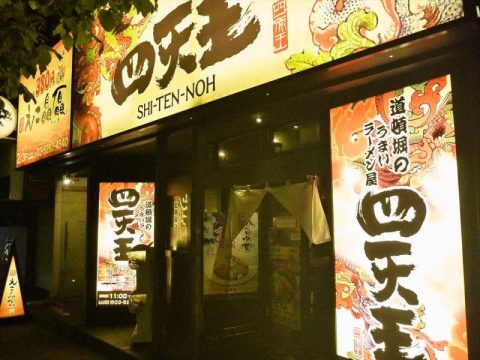
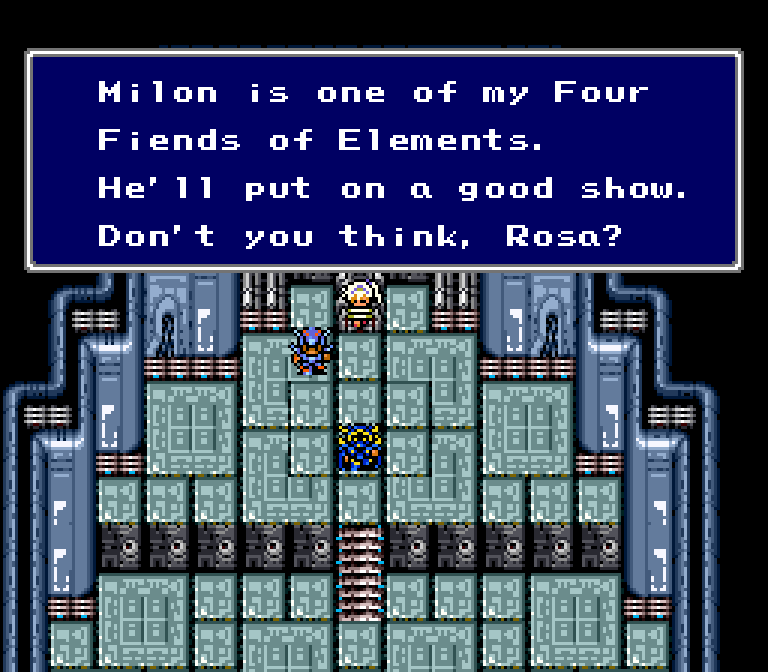
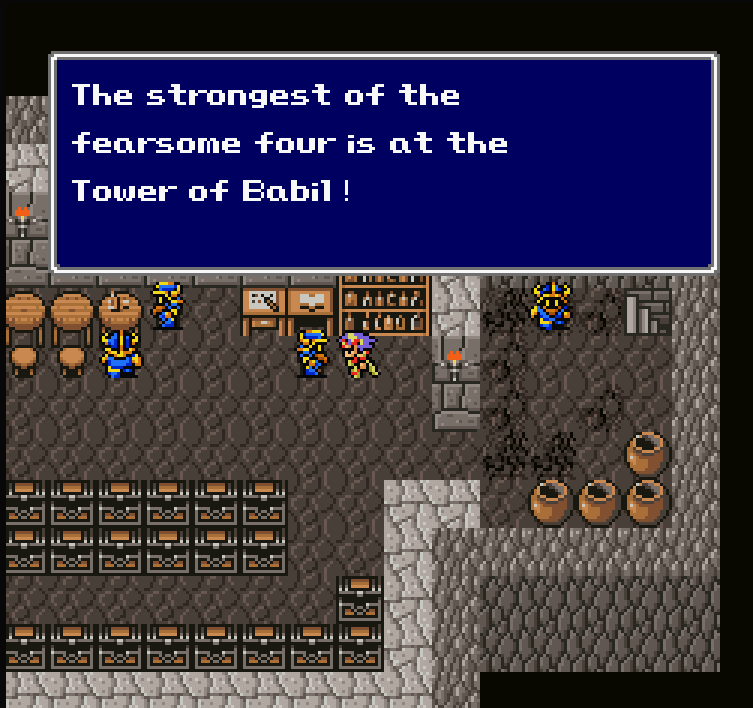
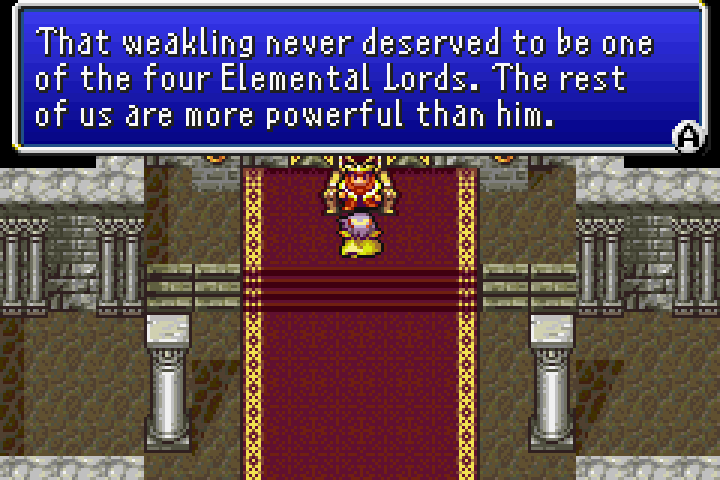

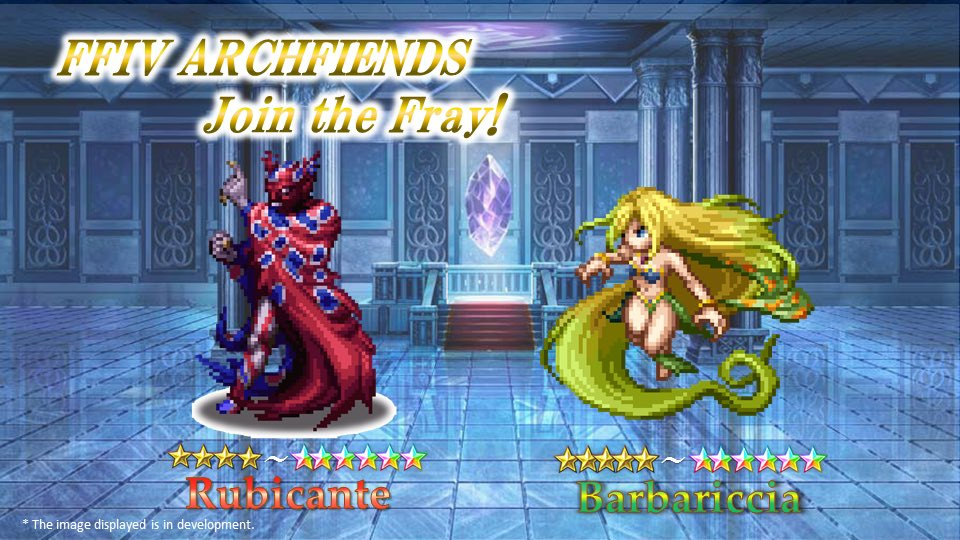
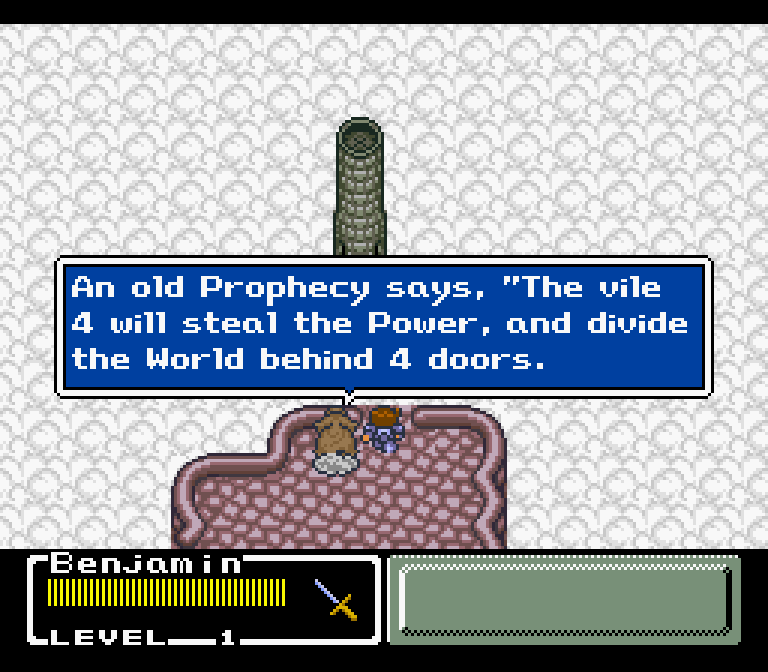
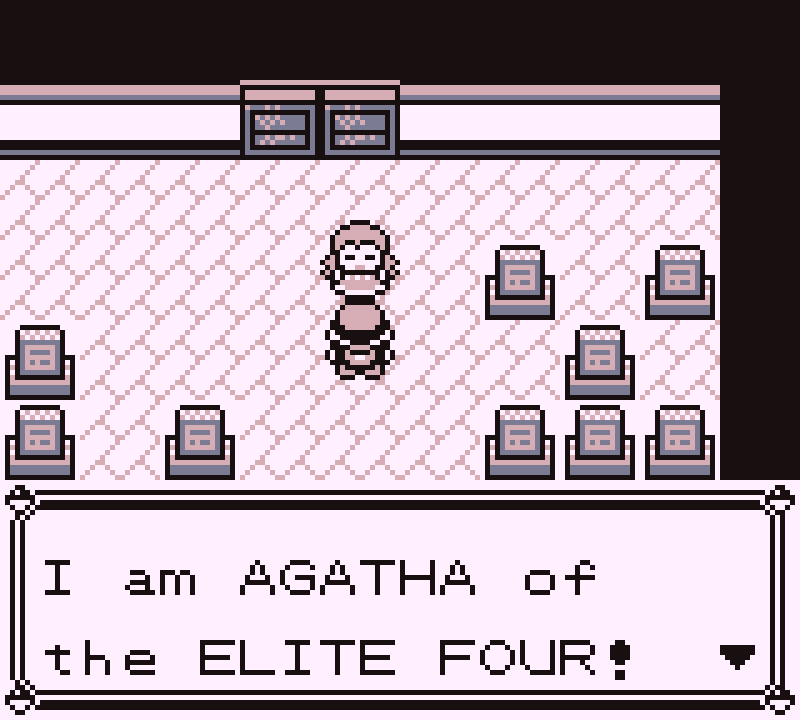
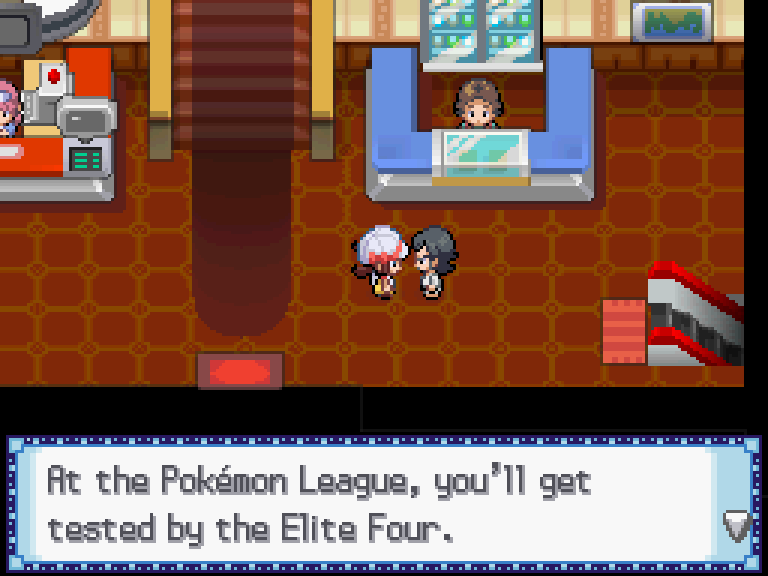
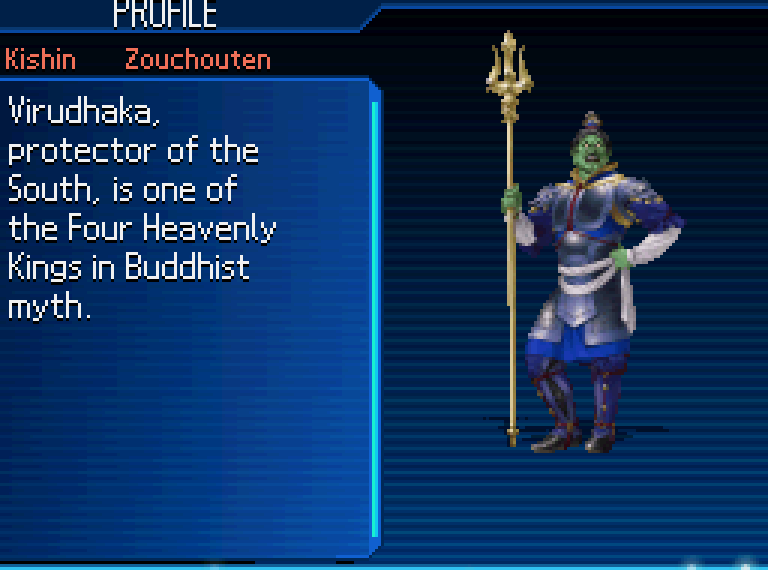
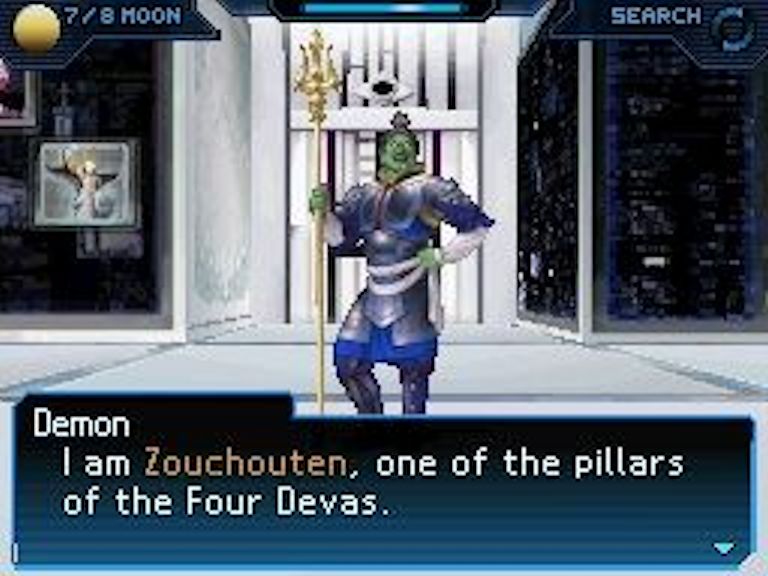

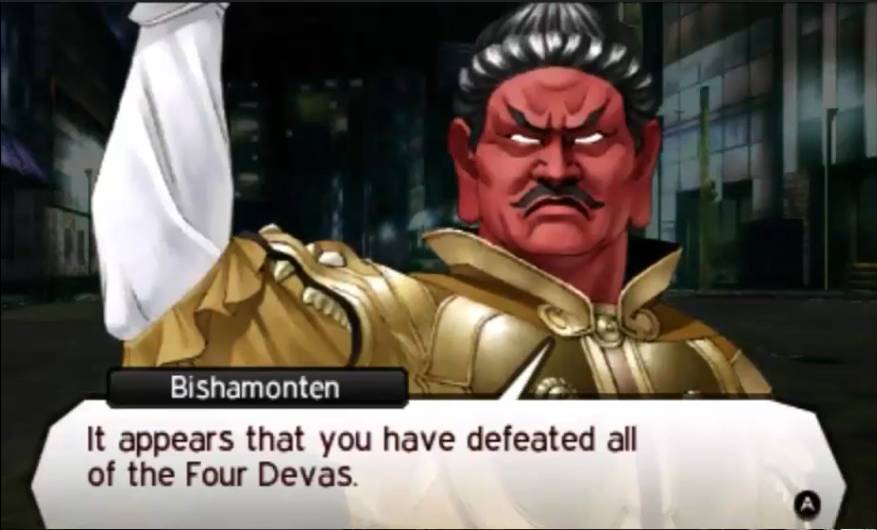
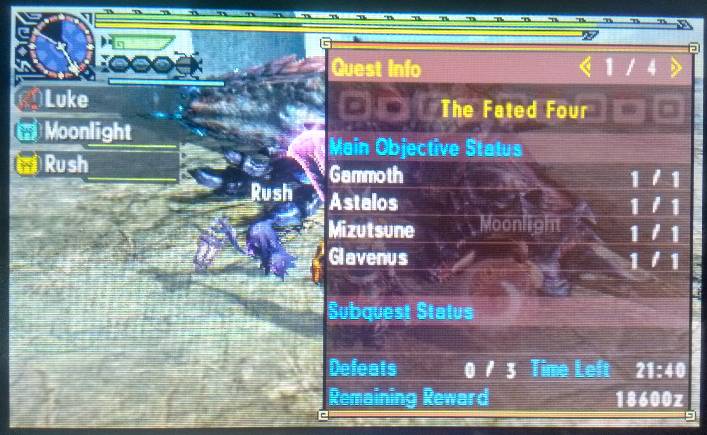
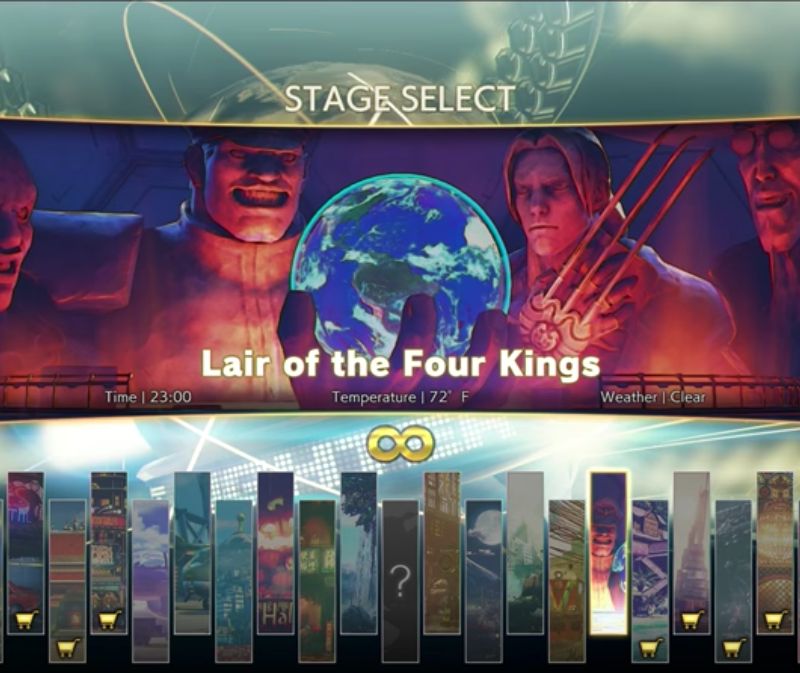
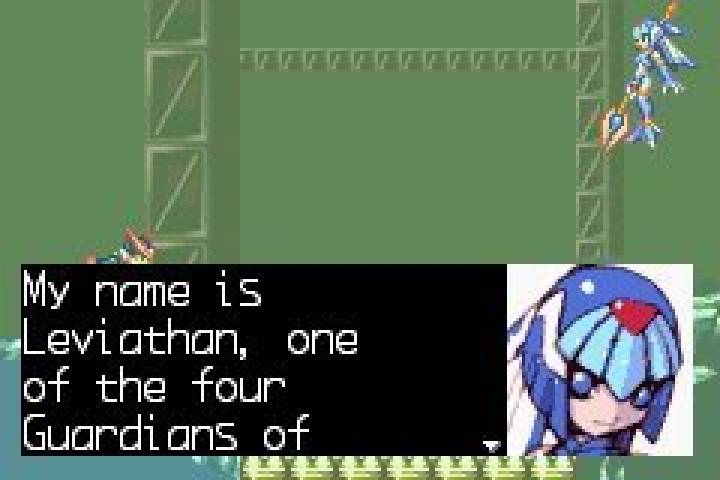
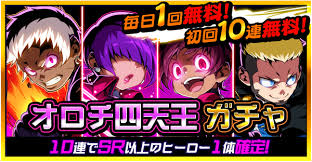
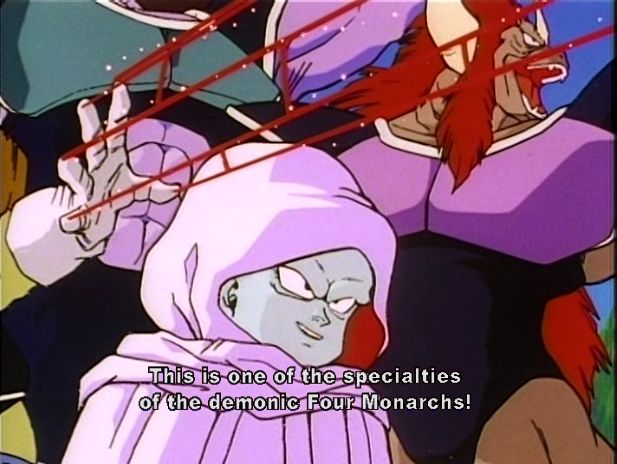
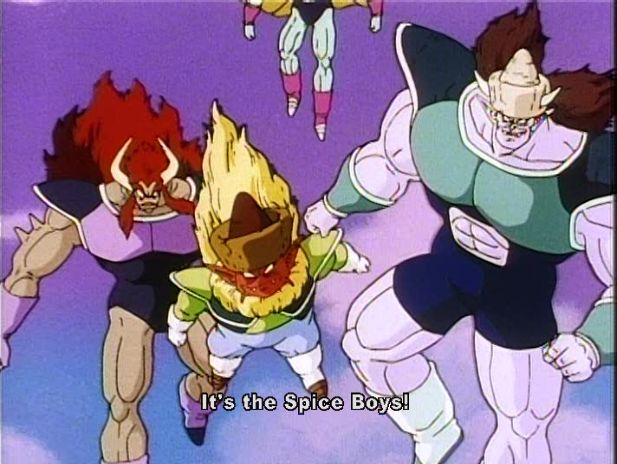
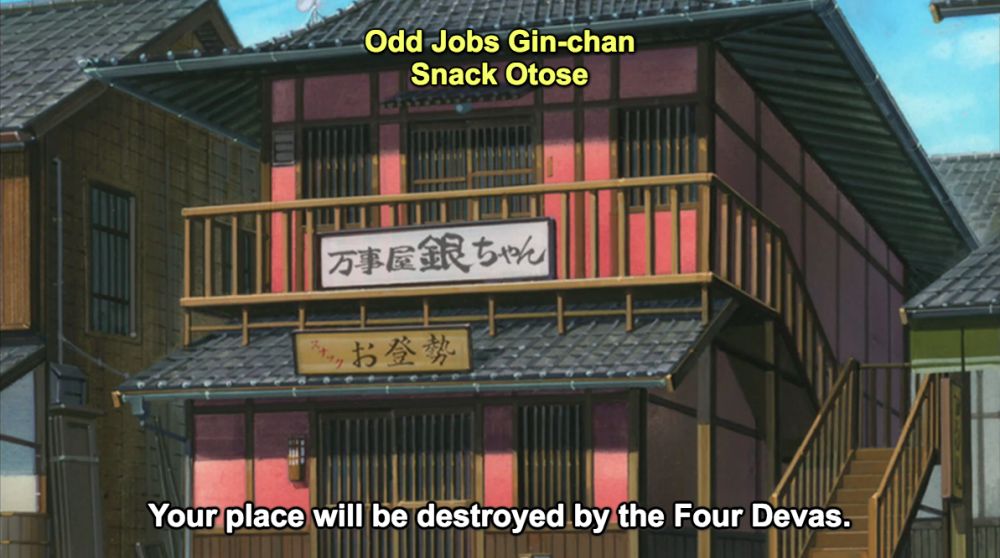

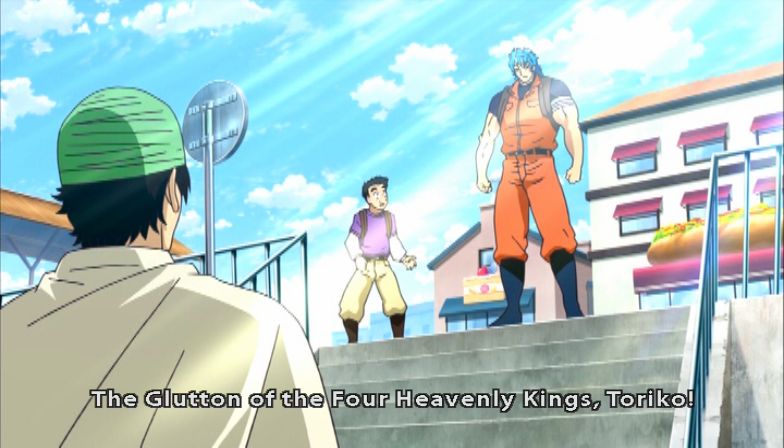
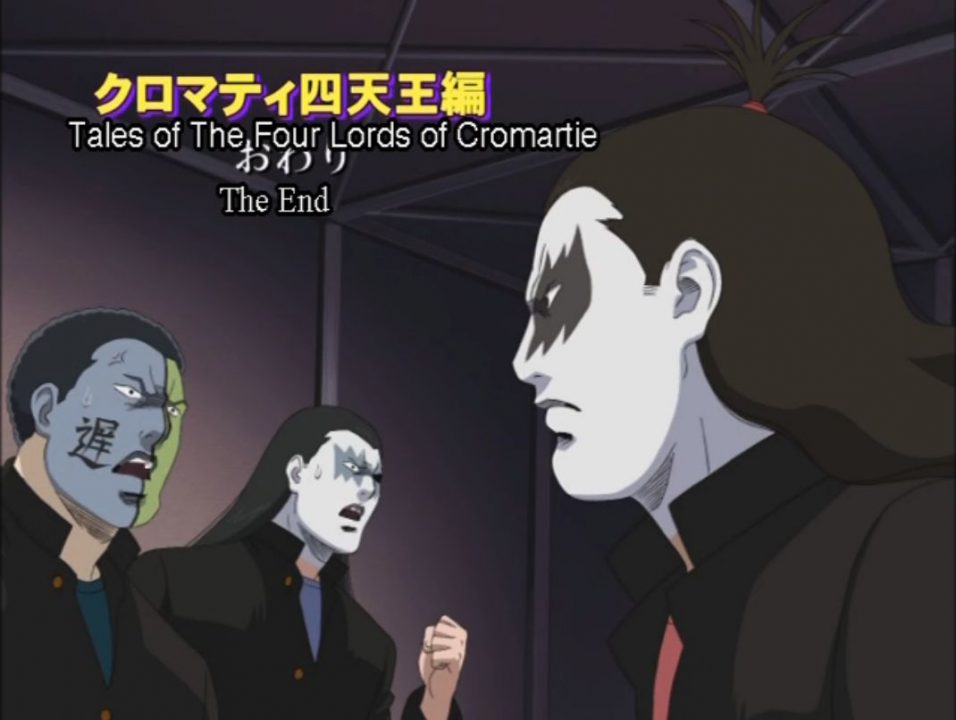
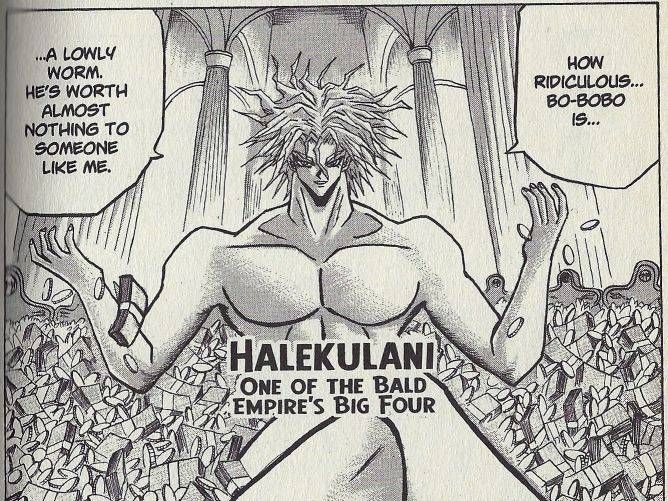
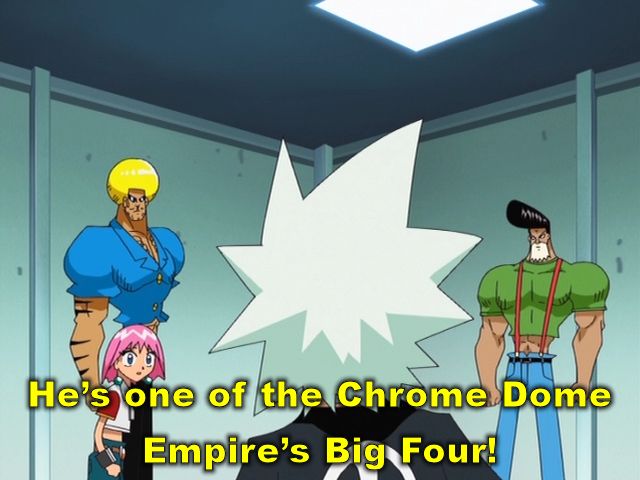
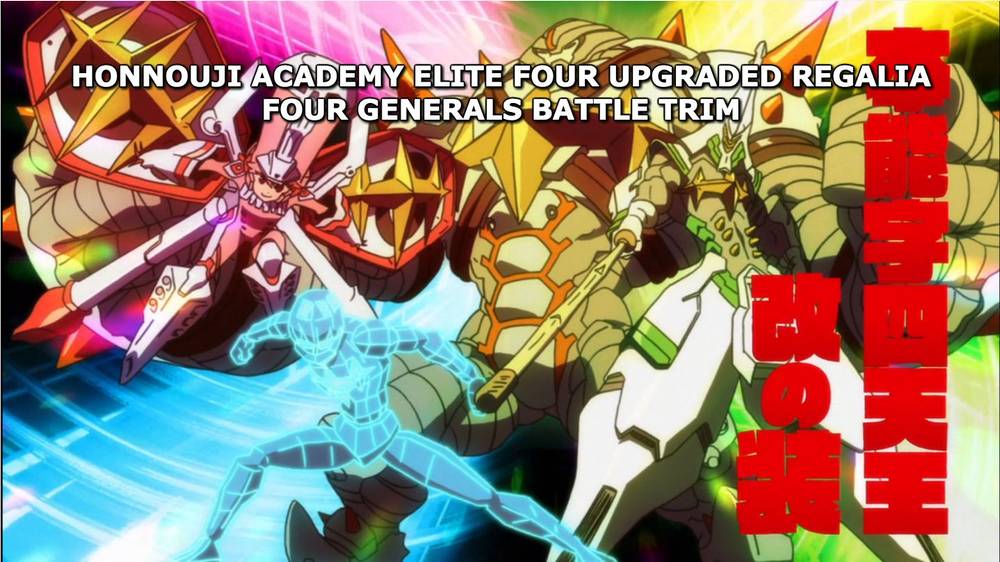
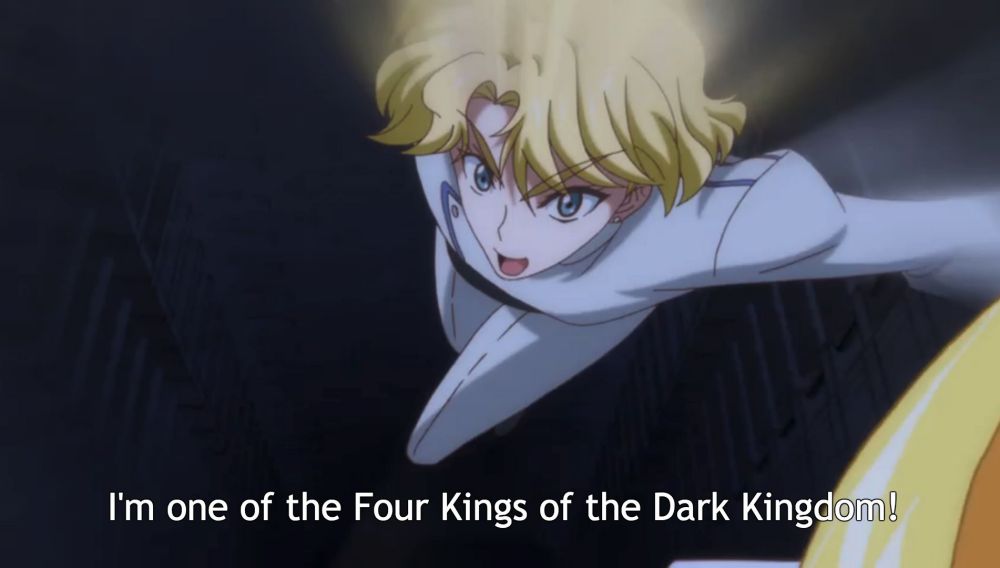

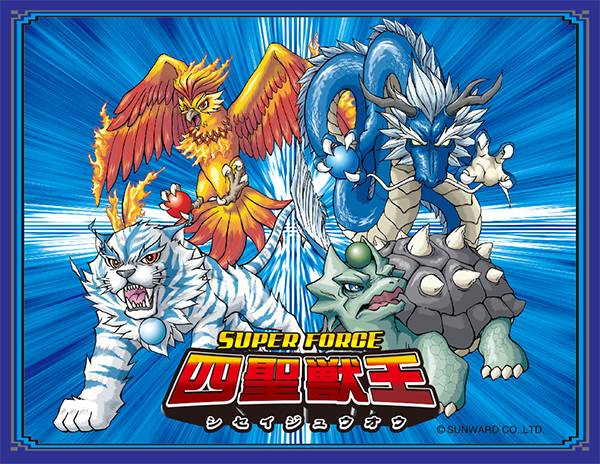
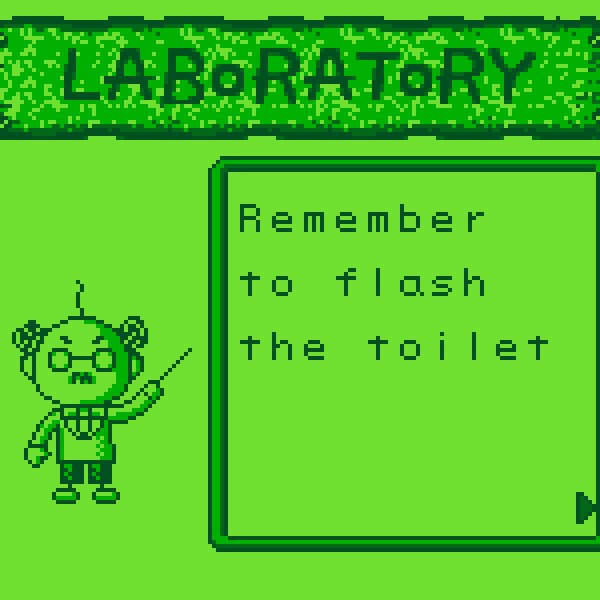
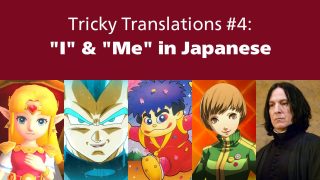
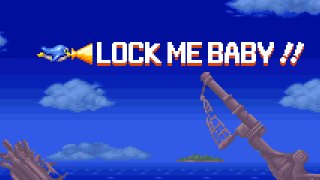
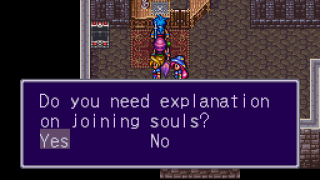
Re: King of Fighters, the phrase was translated as “The Four Heavenly Kings.”
More details here: http://snk.wikia.com/wiki/Hakkesshu
Unfortunately I can’t seem to find a pic of it in-game or on any official materials, just mentions of the phrase outside of the game on forums, wikis, etc.
A quick check of my All About SNK Fighting Games 1991-2000 book (which has all scripts for the games released to that point) doesn’t show the term used in-game at all. It does show up in the thorough SNK encyclopedia appendix in the back, but it wouldn’t surprise me if the materials where they use the term were just never translated into English.
Likely places to check might be mobile games, but I’m not sure if the term comes up there either….
I have never heard the Negacommander moniker. As far as I recall – and as far as the Sailor Moon Role-Playing Game and Resource Book by Mark C. MacKinnon lists – they were simply referred to as the Four Generals of the Negaverse. The RPG and Resource Book was a licensed product, published by the Canadian gaming company Guardians of Order in 1998. It contained a great deal of background information about the series – both the original Japanese series by Toei Animation and the American DiC dub. It also included a fantastic episode guide. I’ve had my copy for many years and just figured I’d pull it off my book and check out what it had to say about the Negaverse generals.
Thanks for all your fine work. I love your site.
Man, I thought I would be the only guy to check that book. Scooped! 🙂
I can’t really confirm or anything, but as someone who grew up watching the DiC dub of Sailor Moon, I do remember them being called Generals and not Negacommanders. Really wish I still had all my old VHS tapes…
Yeah, I’d never heard of “Negacommander” either, but all these Sailor Moon wikis kept mentioning it. I couldn’t find any evidence of it, though. I wonder where the wikis pulled it from.
I love that you used Mega Man Zero as an example. That game is great, but sadly, it doesn’t seem to get nearly as much recognition as the rest of the Mega Man series.
Oh yeah, I forgot to mention it, but there are things that you’d THINK are shitennō but aren’t – the Four Kings boss battle in Dark Souls is one example.
While reading this article I was sorta joking to myself “hey, wouldn’t it be funny if one work’s translators just gave up and translated ‘shitenno’ as ‘the Beatles’ for the hell of it?”, but then I actually started thinking about it, and considering how one of the Beatles’ nicknames was “the Fab Four”, it might be cool if some translations actually did choose to play off of THAT. For instance, “the Foul Four,” “the Fierce Four,” etc; it’s snappy and doesn’t necessarily have to confine itself to the limitations implied by the English words “heavenly” and “kings.”
I’ll definitely keep this in mind for the future to use when it seems like a good opportunity to do so. xD
Would that even clear legal? It’s too direct.
In Pokémon’s official European Spanish localization shitennō has been consistently translated as “Alto mando”, which means “High command” (as in, high command of the Pokémon League).
I’m guess the reason they went with that is that, when the time came to translate the first Pokémon games into Spanish, the trasnlations were based on the English version, not the Japanese one. While “Elite Four” makes sense to an English-speaker,
it’s basically impossible to translate into Spanish without getting creative (something like “Tetraélite” might work) or breaking the character limit. So they just said “screw it” and picked a new name that made sense. All in all, I think it’s a pretty good translation, even if it can sound oddly militaristic
Woah, Tetraélite sounds so cool. Now I wish that was their real name 🙁
Well, considering how nowadays gym leaders are depicted as mayors/governors/figures of authority, and the champion of a region is both the strongest trainer and seems to have some degree of political power, it wouldn’t be a stretch to assume the Elite Four could be related to military. Tetraélite sounds both silly and cool, but I think I prefer Alto Mando.
This reminds me of the concept of Holy Trinity. I don’t think it would be as hard to translate into cultures without a Christian tradition, but it carries a symbolism easily understood in countries where there’s a Christian majority.
When it comes to anime, I remember the “Four Saint Beasts” in Yu Yu Hakusho. Color me surprised when they were actually referred to as the 四聖獣 (shiseijū) rather than 四天王, though!
Well, the 四聖獣 are also an established group, after all.
Indeed! But for someone who is unaware, it shows how the various translations can lead to people assuming one could’ve been the other in English, too. : )
Both the Kaio and Kaioshin in Dragon Ball are based of the Shitenno as well.
Neat! Do you know if they’re ever specifically referred to as shitenno in the series or in supporting materials? That’s mostly what I’m interested in – how the word is translated.
I haven’t seen all of the Japanese version of DBZ, but I did watch the Super one. They aren’t called Shitennno, but materials claimed they’re based on that term.
http://dragonball.wikia.com/wiki/Supreme_Kai_(position)
Here’s a funny video on the Four Fiends from Final Fantasy 4: https://www.youtube.com/watch?v=C8vz186pjY0
the lack of credits and “I HAVE DISABLED COMMENTS BECAUSE I REFUSE TO SUPPORT GOOGLE+.” really speak to how old this video is lol. I’m pretty sure that’s a Hyadain song, but I could be wrong.
Yeah, it is.
wait, isn’t Budweiser the “King of Beers”? I don’t think calling food a king is too outlandish in English.
also now I’m wondering why the original Iron Chef didn’t have 4 Iron Chefs, seems like a wasted opportunity (yeah I know there was Iron Chef Italian, but he felt more like the 6th/green ranger more than anything).
Very good point – I agree that it’s not too crazy to call food/drink a “king” in English, but to call a set of four foods/drinks “heavenly kings” is more of a stretch. Food was just one easy example of what I was trying to say in that section though – that non-living things can be called shitenno too.
As a heads up, the FF mobage you’re referencing is Brave Exvius rather than Record Keeper. FFRK does have Rubicante in it but not Barbariccia as a playable character. Can’t recall what wording FFRK uses for them but FFBE does indeed call them Archfiends.
Thanks, I updated the article with the correct info. They’re indeed called Archfiends in FFRK too – if anyone’s curious, I uploaded a screenshot here. I’d add it to the main article but it wouldn’t add anything of interest except make it even longer 😛
fyi, the picture you’ve noted is from Record Keeper is actually from Brave Exvius
Thanks, I felt like it was too fancy to look like FFRK, haha
Hah, it never even occurred to me before that “Elite Four” was actually the localized term. It’s caught on so solidly, it’s often abbreviated to E4.
You left out the Zombies from River City Ransom. Their counterparts in Downtown Nekketsu Monogatari were the Shitennō of Reihō Gakuen. I always thought the localization choice was kinda weird, since it made the Zombies look like a separate gang from The Plague, when they were really a faction within the same gang.
Oh, so they’re just called “the Zombies”? If so, that’s interesting, I never would’ve known that they were shitennō.
I was wondering why translations never go with “Four Horseman”, but then I realized that it was:
1) Too Christian to fit in Buddhist settings,
2) more closely linked with evil than shitennou, and
3) requires the characters to ride horses.
Yeah, it’s a shame there’s the horse theme to them, otherwise it would fit so well!
There’s also the Four Evangelists in Christianity:
https://en.wikipedia.org/wiki/Four_Evangelists
…now I wonder if that’s sometimes translated as shitennō. And now I’m also picturing a JRPG where they serve as the four major bosses of the Gnostic Evil God.
There’s also the Four Surfers of the Apocalypso. Thank Lucasarts for that one. (And then go play Afterlife.)
I’m not a translator, but I’m kind of surprised there aren’t any cases where it was translated as “the Four Cardinals”, playing off how cardinal can refer to anything of fundamental importance, especially the cardinal directions and the high-ranking Catholic officials. The various western occult traditions derived from Cabalism also has the concept of the Cardinal Archangels, associating Michael, Gabriel, Uriel, and Raphael with each of the four elements and the cardinal directions.
That’s pretty clever. I like it.
i never saw ric flair and arn anderson riding horses and thats the first thing I think of when I hear 4 horsemen
I’ve always been rather partial to the “Four Devas” translation – it’s fairly short and snappy, and works in pretty much every situation. I wish it’d have become more common.
The Ikkitousen franchise had a Shitenno Group in the first arc too, I THINK the official translations used “Four Devas”. Not entirely sure.
Now I want to see a pop idol-themed game where it’s translated as “Four Divas”.
Ogre Battle had a set of ‘Four Devas’. They were powerful enemy generals. I wouldn’t be surprised if they started as shiteno.
Looking though the comments here and on Twitter, you might want to note in the article that shitennō is distinct from another group of four mighty beings that are frequently seen in Japanese media, 四聖獣 (shiseijū, the Four Saint/Sacred Beasts), I’ve seen a few people confusing an example of the latter for the former. Like shitennō, they come from religious teachings imported to Japan and rule over cardinal directions, but religion they come from is different and as the name says they are specifically creatures; they are also more strongly associated with specific colours.
That, and I doubt any group of 四聖獣 will ever have names other than Seiryuu/Qinglong, Genbu/Xuanwu, Suzaku/Zhuque, Byakko/Baihu, and possibly Kouryuu/Ouryuu/Huanglong.
Wait — “Zlayer,” Meganedeth,” and “Majollica?” Oh Japan. Don’t ever change. 🙂
Also: check-plus on that mockup of “Four Heavenly Kings” in Final Fantasy Legend.
What about the Beatles? In the US and U.K. they’re often referred to as “The Fab Four”. Might they be referred to in Japan as “shitenno”?
Nope. The JP concept usually centers on one boss surrounded by the four most trusted henchmen, so the JP won’t consider the Beatles to fit the description.
In this context, this would work: Elton John’s “shitenno” would be lyricist Bernie Taupin, guitarist Davey Johnstone, bassist Dee Murray, and drummer Nigel Olsson.
However, like the fast food example, it would be possible to consider the Beatles as one of the four great Brit Invasion bands, like the Beatles, Stones, Who, and the Kinks.
Is that true? IIRC the last four enemies you fight in Street Fighter II are called shitennou, even though their leader Bison (us)/Vega (jp) is one of them, the other three being his top henchmen. Maybe there are some exceptions to this rule.
As usual, here is my commentary on Italian translations.
-Pokémon translations came out with “Superquattro” (Super 4) as their localized name.
-I played only the DS version of Final Fantasy IV, and it just translated the english monicker into “Arcidiavoli degli elementi”.
-The Kill La Kill dub just esn’t with “Four Devas”
Oops, I meant to say “went”. Stupid corrector…
I wonder if “The Cardinal Cardinals” would make sense as an interpretation…
I guess it could work in a more punny/lighthearted parody setting, but if you really wanted to show the cardinal aspect of them I think something involving the Rose of the Winds would work better. Four/Lords of the Rose/Winds, perhaps? Compass Commanders, maybe?
It took me several days to realize you meant cardinal DIRECTIONS. Sorry, but I guess when I hear “cardinal” I automatically think of numbers.
Chrono Cross also has Four Devas of Acacia Dragoons
I’ll definitely keep this in mind for the future to use when it seems like a good opportunity to do so. xD
I think we as a planet should all agree to use the translation “Heavenly Superperson, or emperor for short” and just move on.
(yes those quotes are in the proper spots)
I’m not sure if it would still be within the scope of this article, but it would be kinda cool to see what Western properties have a group of 4 important entities that was translated INTO Japanese as 四天王 (though I suspect it might be rare, since it’s a very Japanese/Buddhist concept). But the example that came to mind while reading this article was the four Diamonds from Steven Universe, and I got to wondering how they’re referred to in the Japanese dub.
(btw sorry if this gets posted twice, it didn’t go through the first time…)
It’s unlikely because this term typically refers to a group of great, but subordinate four to a single boss. So groups like the Fantastic Four, Teenage Mutant Ninja Turtles, or the Four Horsemen wrestling stable wouldn’t count.
Maybe the X-Men’s Four Horsemen would be closer to the meaning since they are Apocalypse’s minions, but I’m guessing that even in an applicable equivalent, Western terms are kept as is.
Secret of Mana/Seiken Densetsu 2 had the shitennou as well–and pulled a decent bait-and-switch about one of them. Like–“Oh he’s a minion!” No he’s not. 😀
Fun fact: in the Japanese versions of Pokemon Omega Ruby and Alpha Sapphire, the Elite Four have a little introduction graphic when you fight them, but in Japanese there’s English text over it that says “the big four.” I’m not aware of any other games that did this, but it’s interesting that the Japanese version gave a different translation than the one English speakers are used to.
As a long-time Pokemon fan, it bugs me that they used a different name. But it does make sense, when I think about it. Japanese players would be familiar with the word “big”, but not with the word “elite”.
Mr. Mato, I’ve always wondered why in Japanese, it’s pronounce as “Shi-Ten-Nou”. Shouldn’t it be pronounced as “Shi-Ten-Ou”? Where does the extra “N” come from? As someone who studies Japanese, I realize that they do stuff like that all the time for the sake of regularity (like saying “Dai”joubu instead of “Tai”joubu), but is there any particular reason for that extra “N”? Thanks.
Hundreds of years ago, somewhere between the 12th and 16th centuries, Japanese underwent a sound change where syllable-final “n” became doubled when between vowels. This sound change, like all sound changes, only applied to words created beforehand, which is why not all words with intervocalic “n” double it.
Ah, I see.
Thank you for your response.
An interesting aversion is the four “mashou” from Ronin Warriors/Yoroiden Samurai Troopers. The Japanese name is roughly translated as “demon generals” but the dub simply calls them “warlords”
I remember the English dub of the Monster Rancher anime having a shitennou group and calling them “the Big Bad Four.”
The name for the Four Kings in Dark Souls is 四人の公王 (Yonjin no Kou’ou), which in itself is arcane enough to translate directly. The individual components are:
四人の – Four (persons); The usual fare of indicating number of members of a group is by using numeral+人 (person; “jin/nin”), we see that in the Japanese title for The Seven Samurai, 七人の侍 (Shichinin no Samurai), where it’s 七人 (Lit. “Seven persons”). The genitive particle is merely there to indicate its connection to the noun which it modifies.
公王 – First kanji means “duke, official, public” and was used in olden times as a title of nobility comparable to that of a duke or prince, the second one is “monarch/king/regent” or sometimes “lord” in the context of Dark Souls where “Lord of Cinder” in Japanese is 薪の王 (Maki no ou, lit. “KIng of firewood/fuel”), and as such could in accordance with this flavour be rendered as “Princely Lords,” though a more literal translation would be “Ducal King”
Thus:
“The Four Princely Lords”/”The Four Ducal Kings.”
Rendering 四天王 into English and thus preserving all its cultural semiotics could perhaps be done with “(the) Celestial Quartet”? This would cover both people and objects. Then in the context of Buddhism it’d be the more literal translation of “Four Devas.”
You cover Final Fantasy 4, but what about the original Final Fantasy? Since the “Four Fiends” concept actually started with FF1, it’d be interesting to run a comparison back to there, too.
The four big bads of FF1 are called the “4 Chaoses”, 4ひきのカオス.
Romancing SaGa 3 had its own take where the principal bosses were referred to as 四魔貴族 (shimakizoku, Four Demon Nobles) and they were elemental fiends named after King Solomon’s demons in the Goetia.
Arakes – Named after Alloces, wields a spear and earth magic
Byunei – Named after Bune, wields wind magic and controls 3 beast spirits
Aunas – Named after Avnas, wields fire magic
Forneus – Named after Forneus, wields a trident and water magic
The 4 main elements also represented the Four Symbols of the Chinese constellations, and the status menu icons for elemental magic depicted the animal associated with each element.
Fire – Vermillion Bird, Suzaku (朱雀)
Wind – Azure Dragon, Seiryu (青竜)
Earth – White Tiger, Byakko (白虎)
Water – Black Turtle, Genbu (玄武)
The Pokemon “E4”–like all the Poke names, items, places, etc., in ALL CAPS, were already written by the time I was handed the reins to localize Gen 1.
I thought Elite 4 to be quite clever and good for saving space.
I would’ve likely agonized for way too long and then lamed out with something like the Four Masters.
Sometimes, people with little experience in translating innocently come up with great solutions.
Also, the concept of “shitenno” is easily familiar to the JP since it’s nothing new in manga.
That kind of extra tier of mid-bosses before the boss lends itself real well to RPGs, so…
Elite Four is absolutely a good way of translating it.
Of course, if you were to use it somewhere else in this day and age, 90% of the audience would just assume the game/show/manga was making an intentional Pokemon reference, especially if it’s a comedy work like with the Gintama example up there.
Is the band “Meganedeath” on that concert poster supposed to be a Megadeth cover band where the joke is that they wear glasses (眼鏡)?
I’ve always been partial to the “Four Devas”. It doesn’t have the “heavenly” connotations that the standard translation has, it’s quick and snappy and space efficient (even a more conservative “4 DEVAS” could work) and if you’re familiar with the concept of deva it’s quick shorthand for “like the regular but better”.
Of course Elite Four is good too, but I feel it looses the more “other worldly” connotation that Shitennoh has to me.
In the French version of Pokémon the Elite 4 are called “Conseil des 4”, that could be roughly translated as “Council of the 4”, which nicely convey the elitist nature of the group while sounding very natural.
All in all, the French translation of the original games is really great.
It’s alliterative, too!
Just wanted to point that out. Otherwise, I fear some readers would be unable to grasp the true form of the localization team’s skill. (Hee hee)
I’ve been playing Alpha Sapphire in French recently. Gym Leaders are called “Champions” (which I knew beforehand, but forgot about), and it also taught me that the “Name the Descriptor” format existed outside of English.
Speaking of Pokémon, I wonder if this was used to apply to the four Rocket executives in HGSS. it would fit the theme of four figures around a central one.
Shouldn’t the theme apply to the Four Lords in Dark Souls and NOT the Four Kings?
-Witch of Izalith
-Gwyn
-Nito
-Pygmy Lord
For Shiseijū, all I could think of was the Four Saint Beasts from Yu Yu Hakusho and the Digimon Sovereigns from Tamers.
The Vile Four in Final Fantasy Mystic Quest are called Shitenno in Japanese.
No one has pointed out so far that 天 as in 四天王 is Chinese phonetic transcription of “deva” in Sanskrit and has nothing to do with “heaven”.
One group of “shitennou” that spring to my mind is a quartet of minor villains from ‘Gosei Sentai Dairanger’, a Japanese live-action superhero show from the nineties. The “Gattai Shitennou” or Combination Four Heavenly Kings are four men dressed as soutou Buddhist monks, each one wearing a circlet and carrying a shakujou, or Buddhist sounding-staff. Like the name suggests, they can combine to become more powerful, becoming a single person wearing similar clothes, but with a kind of fused four-way mask for a head. What’s interesting here is how their title plays into the way the villains in that show were named: all the minor, episodic villains had a two-part moniker of an object or idea and some kind of title for a person. “Key Jester” was a clownish villain made of keys, “Purse Priest” was a monk with a coin purse for a head, etc. So in this case, “shittenou” is being used for the type, or archetype even, of person they are, no different than if they were a doctor or a teacher.
I was briefly working on an aborted translation for Metal Max 2, a post-apocalyptic JRPG, where the shitennou are the leaders of a roving biker gang – the religious implications are pretty strong, here, and there’s a sacrilegious sense to the term’s use. I was pretty proud of the localization I came up with – the Four Horsemen.
(I should clarify that this was years ago and I wouldn’t be shocked if I was completely overestimating the religious implications – even so, “four horsemen” was a very solid choice IMO)
Also, if anyone comes across this who’s doing their own MM2 translation, I give you permission to use the Four Horsemen localization IF you make sure to keep Ted Broiler’s がががーーーっ! as “Gagagaaaaaaaaaaah!”
In Touhou a group of 4 particularly fearsome oni in Gensokyo are referred to as 山の四天王, which depending on who is translating it into English ends up as Big Four of the Mountain or Four Devas of the Mountain.
To add to the Sailor Moon bit, the Kodansha translation of the manga renders Shitenou into the overly wordy “Four Kings of Heaven”
Back in the early ’90s, Chinese-language media was using the term 四天王 to refer to the four “kings” of Chinese pop music back then: Andy Lau, Aaron Kwok, Leon Lai and Jacky Cheung. I believe the translation “Four Heavenly Kings” originates from English renditions of these media reports.
A neutral and versatile, if slightly bland, rendition might be “Four Aces” – since there’s nothing particularly religious about most of the examples. Although that does raise the question of which suit corresponds to which character…
A couple 四天王 translations that I haven’t seen mentioned yet:
Finest Four (Crystalis)
Four Emperors (SaGa Frontier)
I’m trying to come up with an alternate for shitennou, so I came back to this article. Unfortunately, the “shi” in *this* shitennou is the kanji for purple, and while it’s clearly supposed to be a variant of “the four heavenly kings”, none of these translations work because the word “four” is nowhere in the term (smirkcry). I’m hoping I get a bout of inspiration to make it work. Otherwise, very good article 10/10 would recommend
Speaking of Kill la Kill, the 四聖獣 make an appearance in the second half of the series as well.
Also, that metal concert poster reminded me of what could be considered the “Four Heavenly Kings” of American thrash metal, all bands from the 80s collectively known as The Big Four: Metallica, Megadeath, Slayer and Anthrax.
Oh my God, I thought Team Four Star made up “The Spice Boys” for their parody, but apparently it’s real.
I guess they looked at the original English translation and (rightfully) decided, “nope, we’re not coming up with anything more ridiculous than that.”
Very interesting!! I found this while looking up what other media besides Sailor Moon have featured groups called shitennou, I had no idea that the Elite Four from Pokemon were also called that. I love that image meme that localized “four horsemen of the apocalypse” into shitennou.
There is also a set of shitennou in Yugioh, but they only appear in the first anime from 1998, which was never officially released in English, so we don’t have an official localization for their title. Specifically they’re called the “Game Shitennou” ゲーム四天王 and the English fan translations I’ve seen all went with “the Four Game Masters.” Maybe interesting that they went with something that doesn’t use the word “king” because of course Yugioh means “king of games” so it’s got the same “ou” in there (遊戯王).
I wondered if the Sound Ninja Four, a group of villains from Naruto, were also shitennou because Naruto uses a lot of japanese folklore concepts but their original Japanese title is literally just what translates to “the four ninja from Sound.” BUT I think they are still a shitennou reference because each of them is associated with one of the compass directions (they introduce themselves with it, like, “I’m Jirobo of the Southern Gate” etc).
I have problems with this name here “次生物引擎” (chines) or “神体” How to translate this? These sci-fi terms?
I’m back on this post because I recently discovered that the Italian translation of Final Fantasy IV Advance refers to the four elemental fiends as “Tetrarchi celesti” – literally “Celestial Tetrarchs” and wow that sounds cool.
It totally does. The French translation goes with “Seigneurs Elémentaires” (“Elemental Lords”), which makes sense considering their affinity with the classical elements, but it’s kinda boring in comparison…
There’s a bootleg Pokemon Green Rom with a translation as “the Buddha’s four warrior attendants”!